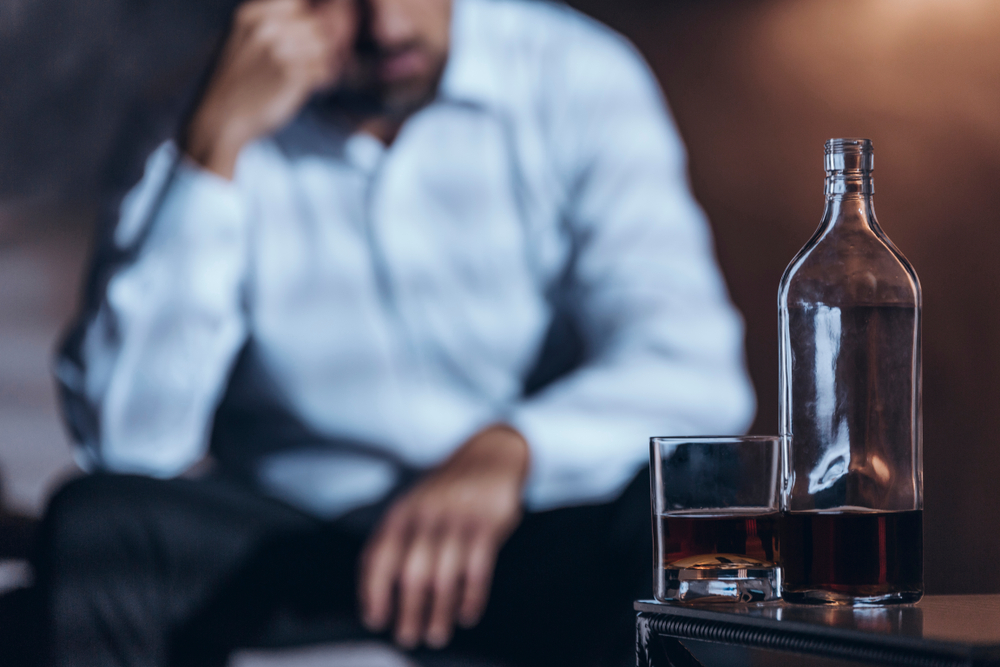If you or a loved one has completed alcohol and drug detox, intensive treatment, and are in recovery, you may believe that relapsing is impossible. Although everyone’s situation is different, there remain many reasons and causes of relapse. Sadly, numerous people relapse after attending treatment for drug or alcohol addiction. Studies demonstrate that 40-60% of individuals relapse within one month after leaving an inpatient treatment center, and up to 85% relapse within the first year.
Those who are dealing with alcohol or substance addiction must understand the high risk of relapse, recognize their individual triggers, and find healthy ways to manage their triggers and emotions. With a knowledge of the common causes of addiction relapse, individuals can strengthen their recovery. Here is a compilation of 11 triggers commonly associated with relapse.
Relapse Defined
Going back to using drugs or alcohol after a period of abstinence is known as relapse, which is a normal part of the recovery process. It doesn’t necessarily mean that the addiction treatment didn’t work or that the individual has gone back to the start of their sobriety journey. Addiction is a long-term condition that is characterized by relapses. A relapse can lead to a return to hazardous behavior, damage to either personal or professional relationships, or even a regression in health. Relapsing should not be a source of embarrassment. Having a minor setback in sobriety does not diminish the progress made so far or affect the ability to reach long-term aims.

The Top 11 Most Common Causes of Relapse
Determining the most frequent factors that lead to relapse is very beneficial for those who are recovering from addiction and for those who are providing support during their recovery process. This can be helpful in preventing a potential relapse in the event that one occurs. The following are the most common reasons behind relapse:
1. Stress
Stress can have a major impact on those who are trying to stay in recovery. Not only can it cause the person to relapse, but it can also make the person feel an increased craving for the substances or activities of choice that they have been trying to avoid. Unfortunately, many people turn to these as maladaptive coping mechanisms due to their familiarity and ease of access. It is therefore important for those struggling with addiction to find healthier ways of dealing with stress in order to prevent relapse.
2. Negativity
People who struggle with addiction need to find alternative ways of managing the negative feelings that they encounter on a day-to-day basis. While it is true that alcohol, drugs, or addictive behaviors used to provide temporary relief from those feelings, relying on them will no longer be an option. Therefore, it is important to focus on developing effective coping mechanisms that will allow the individual to tolerate and make sense of the negative feelings encountered in daily life. This could involve activities such as exercise, meditation, art therapy, and talking to a therapist or support group. With these tools in place, people can better manage their negative feelings and lead healthier lives.
3. Triggers
It is crucial for individuals in recovery to be aware of their potential triggers, as it can make all the difference in preventing relapse. People, places, and even family members who have participated in one’s addictive behavior can be triggers, and it is important to be mindful of how these situations make one feel. When one is reminded of their addiction, it is important to have effective coping mechanisms to deal with the emotions that may arise. One such way could be to practice mindfulness techniques, such as deep breathing or focusing on the present moment. By recognizing these triggers and learning how to manage them effectively, one can work on maintaining a substance-free lifestyle.

4. Mental Health Issues
Due to their inability to properly address mental health issues, individuals with alcohol or drug addiction may relapse when faced with psychological issues such as depression or anxiety. This is because they are not accustomed to managing these emotions without the aid of alcohol or drugs. Consequently, it is important for individuals with addictions to learn effective coping mechanisms and seek professional help in order to ensure that their mental health issues do not lead to a relapse.
5. Reminders
Reminders of your addiction can be a major hindrance in the recovery process. They can trigger relapse easily, so it is important to identify and address triggers during the early stages of quitting. For instance, a whiff of cigarette smoke may be enough to trigger a relapse and watching people enjoy alcoholic drinks or couples engaged in an intimate embrace may also be potent reminders that one must stay away from. To cope with these reminders, one must develop coping skills such as self-distraction, deep breathing exercises, and mindfulness activities. Through this approach, one can strengthen their resolve to quit and maintain lasting sobriety from their addiction.
6. Social Gatherings
Gatherings such as birthdays and holidays can also be triggers for addictive behaviors. These events often come with a sense of happiness and control, leading one to believe that a single indulgence will not hurt. The reality is that these individuals who struggle with addiction frequently lose their ability to moderate themselves and one indulgence could easily lead to a full-blown relapse. It is important to be aware of these events and how they can potentially affect those facing addiction.
7. Lack of Self-Care
Poor self-care can have a detrimental effect on an individual’s well-being and mental health, potentially leading to relapse. For instance, eating an unhealthy diet that is low in essential nutrients and high in sugar can cause poor physical and neurological health, resulting in low mood and triggering cravings for alcohol or drugs. Furthermore, weight gain can cause people to feel depressed and tempted to turn to substance use as a means to lose weight. Poor sleep hygiene can also leave people feeling irritable, stressed, anxious, and prone to experiencing low mood – all of which are potential triggers for relapse.
8. Isolation and Boredom
Isolation and boredom are major triggers for relapse in early recovery. Individuals often find themselves with too much free time and the lack of meaningful activities can lead to an unhealthy state of mind. When people are isolated, their own thoughts and emotions can become overwhelming, as they may not want to face them or acknowledge their existence. It is important for people recovering from addiction to develop coping strategies that help them manage these feelings and reduce the risk of relapsing. Isolation can be a powerful force, but it can be managed through positive outlets such as talking to a therapist or engaging in creative activities.

9. Intimacy in Relationships
It is generally recommended that an individual who is not in an intimate relationship at the start of their recovery should avoid entering one for a period of months or even a year until they become more stable. The reasoning behind this is that recently sober people may attempt to fill the gap in their lives with a romantic partner. In addition, dating and intimacy often involve alcohol, which can be difficult for a newly sober individual to manage without utilizing drugs or alcohol. Furthermore, even existing relationships prior to recovery can bring up distressing feelings that a newly sober person may not know how to handle. Finally, those who are newly sober may not have had the experience of sober sex, and thus sexual activities during recovery can be very discomforting.
10. High Expectations
There is no doubt that one of the principal reasons for relapse in addiction is when expectations are set too high for recovery. It is important to understand that stopping the use of drugs or alcohol will not miraculously cure all of the issues in your life. Even though you have sworn off substances, it does not mean that everyone you have wronged will grant you absolution. The effects of your choices before treatment will not immediately vanish. Addiction recovery is a lifelong process and, on some occasions, you may wonder if it is even worth it. This way of thinking can easily lead to a relapse.
11. Overconfidence
After a period of successful abstinence, people in recovery may become overconfident and believe that they are able to handle any temptations or triggers that come their way. However, this is usually not the case and it is important to remember that during early recovery, individuals are more vulnerable and may not be completely equipped to deal with an onslaught of triggers. Therefore, it is wise to take precautions and remember the reasons why drugs or alcohol were once used as an escape in the first place.
Alcohol and Drug Detox in Los Angeles, CA
At MD Home Detox, we understand that seeking alcohol and drug detox can be daunting. That is why our team of dedicated clinical professionals has designed a concierge detox program to provide treatment in the comfort of your own home. We are proud to offer individualized treatment plans tailored to each client’s specific needs and circumstances.
If you or someone close to you would like to learn more about getting help in Los Angeles or would like additional details about our services, please don’t hesitate to reach out. MD Home Detox is here to help.

